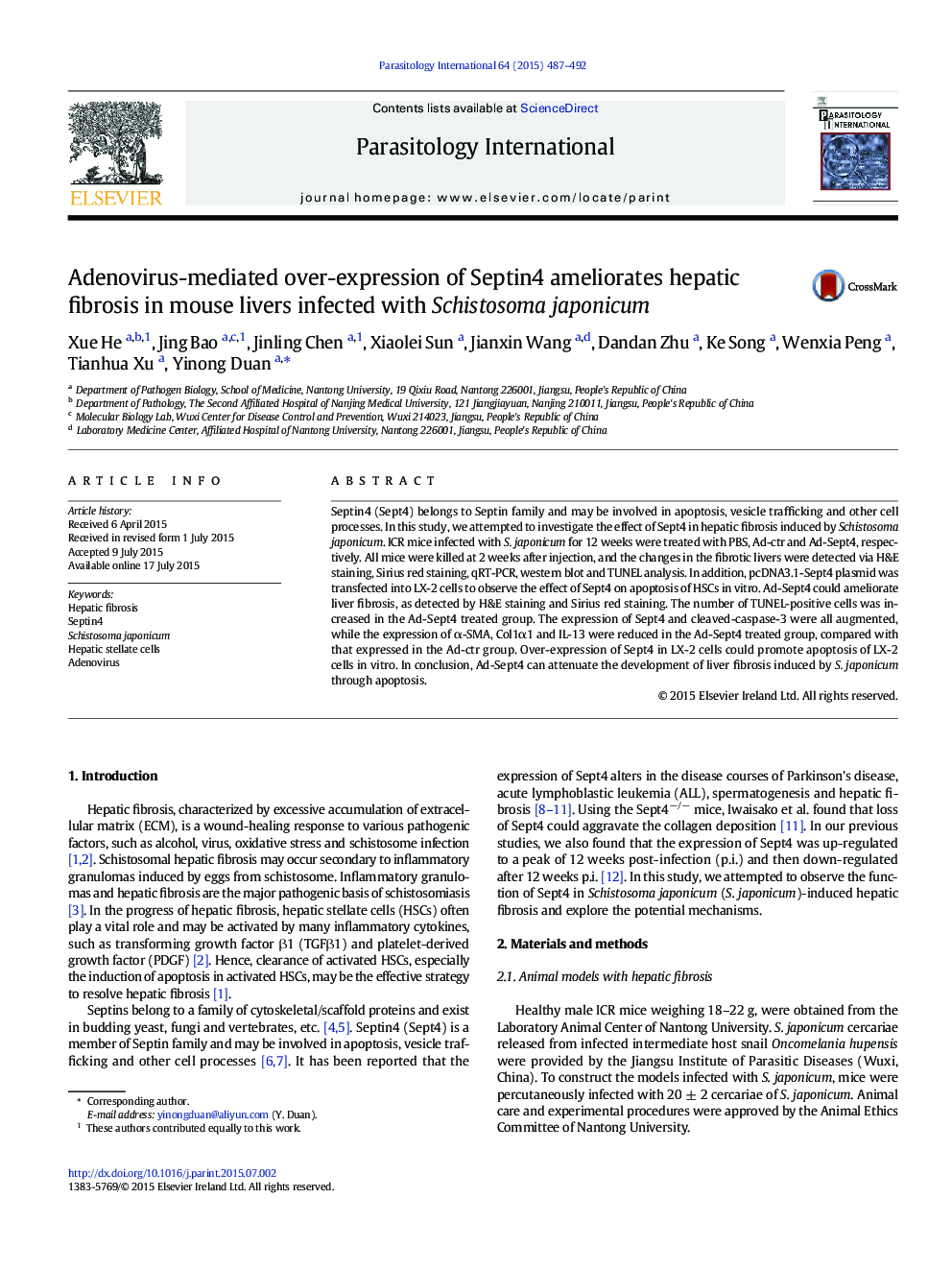| Article ID | Journal | Published Year | Pages | File Type |
|---|---|---|---|---|
| 3417767 | Parasitology International | 2015 | 6 Pages |
•Sept4 could reduce α-SMA expression in Schistosoma japonicum-infected mice.•Sept4 could reduce collagen deposition in Schistosoma japonicum-infected mice.•Sept4 could induce apoptosis in hepatic stellate cells.•Sept4 could induce apoptosis in Schistosoma japonicum-infected mice.
Septin4 (Sept4) belongs to Septin family and may be involved in apoptosis, vesicle trafficking and other cell processes. In this study, we attempted to investigate the effect of Sept4 in hepatic fibrosis induced by Schistosoma japonicum. ICR mice infected with S. japonicum for 12 weeks were treated with PBS, Ad-ctr and Ad-Sept4, respectively. All mice were killed at 2 weeks after injection, and the changes in the fibrotic livers were detected via H&E staining, Sirius red staining, qRT-PCR, western blot and TUNEL analysis. In addition, pcDNA3.1-Sept4 plasmid was transfected into LX-2 cells to observe the effect of Sept4 on apoptosis of HSCs in vitro. Ad-Sept4 could ameliorate liver fibrosis, as detected by H&E staining and Sirius red staining. The number of TUNEL-positive cells was increased in the Ad-Sept4 treated group. The expression of Sept4 and cleaved-caspase-3 were all augmented, while the expression of α-SMA, Col1α1 and IL-13 were reduced in the Ad-Sept4 treated group, compared with that expressed in the Ad-ctr group. Over-expression of Sept4 in LX-2 cells could promote apoptosis of LX-2 cells in vitro. In conclusion, Ad-Sept4 can attenuate the development of liver fibrosis induced by S. japonicum through apoptosis.
Graphical abstractFigure optionsDownload full-size imageDownload as PowerPoint slide
